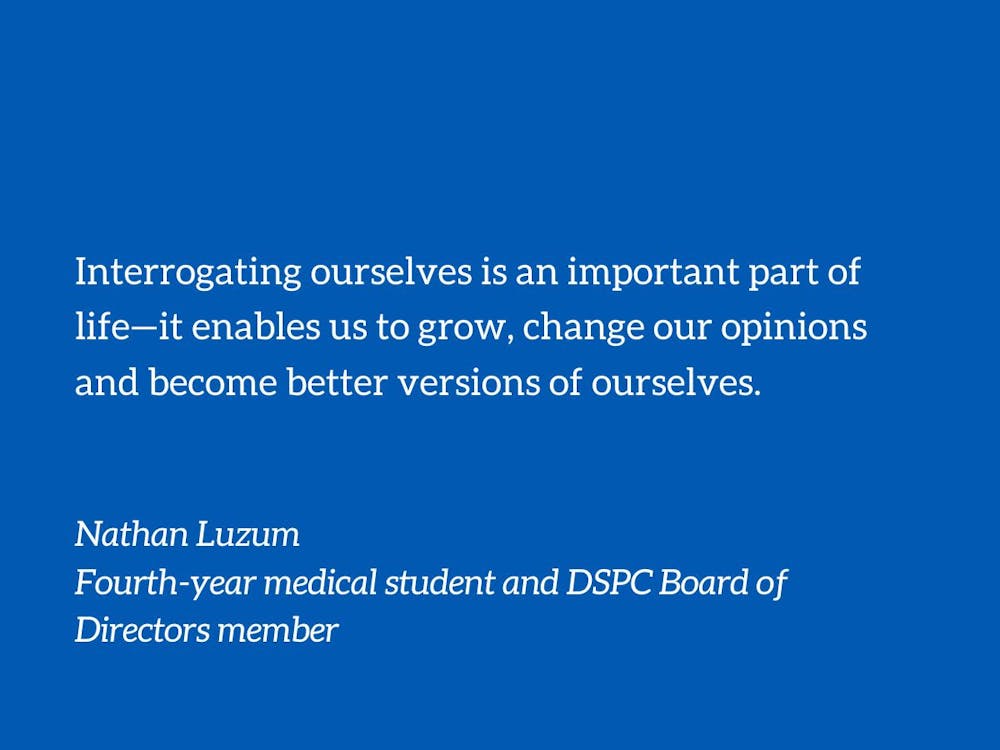Being in a crowd of unknown people is simultaneously freeing and terrifying.
This was one takeaway from the beginning of my fourth year of medical school. At the start of the year, students applying into certain specialties undertake "away rotations" at other institutions before applying to residency positions. These are viewed as month-long opportunities to showcase preference and dedication to specific programs, explore life in different cities, and allow more people to put a name to a face. Conversely, they also allow applicants to evaluate programs and their culture, getting a sense of life as a resident.
Some people use these rotations as a chance to signal strong interest in a particular city or area — near a significant other, for instance — but for someone like me who doesn’t feel particularly tied down, I rotated in St. Louis and New York, close to family and friends, respectively. It was in these environments, walking down hospital hallways staring into a sea of unknown faces, that I often reflected on my anonymity. After spending a considerable amount of time at Duke, it’s become nearly a guarantee that I’ll recognize a few faces on any stroll around the hospital. Removing this comforting reinforcement of familiarity opens up the opportunity — and terror — for redefining one’s identity. During these rotations, I often thought about identity formation, or how we conceive of our place in the world around us. To me, it seemed as if that world had entirely changed.
Most psychologists point to adolescence as the time when we begin to question and explore identity, arriving at some semblance of who we are. But this initial conclusion about who we are is not immutable. Even once our identity is preliminarily formed, continual re-examination of our personality and values resurfaces from time to time, especially during major life changes. Many younger people may describe the transition from high school to college or from college to post-graduate life as soul-searching periods where aspects of their identity were modified or fortified.
I wrestled with this notion after moving to St. Louis, then New York, waffling between feeling liberated and intimidated. At times, it was empowering — I thought about how I could show up to the grocery store in mismatched clothes and face no societal repercussions from people I knew. Then I realized I often go shopping in Durham in poorly coordinated outfits, which made the whole exercise seem much less novel.
Spending more time at each new hospital, I noticed myself growing increasingly comfortable and confident with trying out subtly different approaches in engaging with patients or carrying myself in the operating room. Being in a new place made these efforts easier, without the habitual environment to reinforce my usual traits and tendencies. This decision to try out new approaches wasn’t confined just to the hospital, though, as I expanded my comfort zone by exploring my new environments solo. I started out small, facing my fears by dining and attending movies alone. Finding the experience not nearly as scary as anticipated, I began expanding my journeys and eventually found myself riding to the top of the Gateway Arch or climbing to the crown of the Statue of Liberty, accompanied by only the kind strangers I met along the way. I adopted a mentality of agency in planning my activities without restricting myself only to times when others were available, leading me to feel more fulfilled.
Reading this, you might get the impression that I was completely lame and totally friendless in these cities. I want to assure you that I did not amble about on my lonesome all the time. Really, catching up with college friends and meeting other medical students living in the area were highlights of my time away. In fact, I began finding familiarity in places I least expected. Walking along a random street in St. Louis, I ran into someone I knew from college (a former upper masthead Chronicle editor, no less) and we made a plan to catch up over lunch. Strolling around one evening in New York, I happened to see another college friend — yes, you guessed it, another former Chronicle editor. In the hospital, I’d reconnect in happenstance elevator rides with people I shared college classes with who were now residents. Small connections began to pop up everywhere, whether it was meeting someone from my hometown in Kansas or eating somewhere that reminded me of a favorite Durham restaurant.
These encounters felt like brief glimpses of the known in a foreign landscape. As time went on, though, I realized that there were far more familiar elements than I first appreciated. Even in a new environment, I wasn’t completely unmoored from my past and my values. Both inside the hospital and out, the known became more apparent. Echoing through the noise of novelty was the everlasting importance of empathy toward patients and determination to develop the best possible plan, even if the faces and buildings surrounding me were unusual. It was my past experiences — reinforced by continual reminders of familiarity circulating around me — coupled with the relocation-related feeling of freedom that subtly reformed my sense of identity.
Interrogating ourselves is an important part of life — it enables us to grow, change our opinions and become better versions of ourselves. Few things are entirely new, and we can often find roots of the past in uncharted territory. Regardless of where I end up for my residency training next year, I’ll hope to carry forward that philosophy. Growing as a person requires us to embrace the new while appreciating the old, continually blending our past and present.
Nathan Luzum is a fourth-year medical student and a member of the DSPC Board of Directors.
Get The Chronicle straight to your inbox
Sign up for our weekly newsletter. Cancel at any time.

